
"But isn't there a way to save my tooth doc?"
You should always look for long-term solutions when it comes to your teeth. It doesn't make sense to spend time and money just to hang on to a tooth for several more months, or arguably even an additional year or two. Before dental implants, it made sense to try everything in your power to save teeth. Nowadays, there are ways to replace failing teeth with more stable and permanent solutions. Therefore, the question becomes "when is it time to just say goodbye to your tooth/teeth?" Is it time to start saving up for a dental implant, bridge, or denture instead of redoing that crown or root canal and trying to save the teeth? Let's take a look at a few scenarios where it's simply just not worth saving these teeth:
Not Enough Tooth Structure to Restore the Tooth
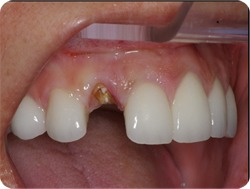
Don't waste your time and money trying to save teeth that are not restorable
The more a tooth has been worked on, the worse its long-term prognosis. Each time your dentist works on a tooth, they remove more and more tooth structure. Each tooth has its limit in terms of how many times it can be worked on before it starts to fail. A tooth that has already had several filings, a crown, and a root canal, hardly has any more tooth structure left to support a long-lasting prosthesis. These teeth are generally not worth saving. You will only experience recurring issues if you try to salvage them at all costs. Save yourself the headaches, remove the poor tooth, and look for a more durable and long-lasting solution instead.
Severe & Recurring Infections
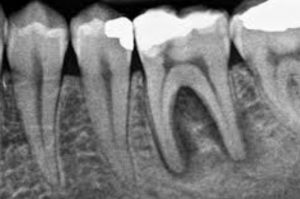
Massive infections like this are not likely to respond to root canal treatment and you should remove the tooth
Root canal therapy is a relatively effective and proven way to save infected teeth. However, there are certain scenarios where root canal therapy is not the way to go. One example is root canal treatment for teeth with a long-lasting infection. Teeth with chronic infection don't usually respond well to root canal treatment. Another scenario is a failing root canal. If a root canal is poorly executed then redoing it may yield positive results. However, redoing a failing root canal typically has mixed outcomes. These teeth oftentimes fail sooner or later, regardless of how well the root canal treatment is executed and how good the tooth appears on the X-ray. Spending another thousand dollars on a tooth that has less than a much lower than 50% prognosis is usually not a wise idea. You're better off removing these teeth and replacing them with dental implants. Otherwise, you risk having to redo the entire work. In addition, you also have to deal with the continuous leakage of infection into the bloodstream from your failing and infected root canal tooth. Ouch!
End-Stage Gum Disease
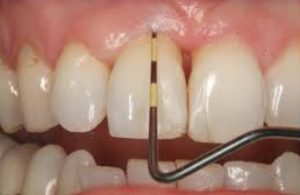
Teeth with periodontal pockets of 8 or 9 millimeters are not worth saving and you will eventually have to remove them
Once your tooth loses enough supporting bone, it can no longer be saved. You might be able to tell when a tooth has lost its supporting jawbone when it starts to move. If your tooth is so loose that it wiggles back and forth, then it's unlikely that you're going to be able to save the tooth. Loose teeth are the result of advanced gum disease. Sadly, gum disease is only treatable in its early to mid stages. Once your tooth has lost 70% to 80% of its supporting bone structure, there's not a whole lot you can do to save it. Gum surgery may be an option, but for most patients, it's already too late to save their teeth. Teeth with deep periodontal pockets of 8 to 9 millimeters have a very poor long-term prognosis. You are generally better off removing these teeth and investing in other treatment options instead.
Problematic Wisdom Teeth
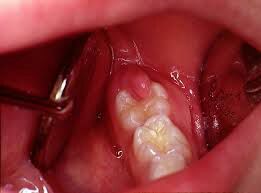
Impacted wisdom teeth need to be removed to avoid pain and infection
Wisdom teeth are the teeth located all the way in the back of your mouth. Wisdom teeth are only worth keeping if (a) they are completely embedded in your jaw and fail to erupt, or (b) they come out in an upright position and fit comfortably into the mouth. Most people end up having to remove their wisdom teeth. Your wisdom tooth may be sitting in a position that makes it impossible to clean. There might not be enough space in your jaws to accommodate the wisdom tooth, which leads to teeth crowding and pressure pain. Problematic wisdom teeth cause teeth crowding, gum swelling, infection, severe pain, etc. You should remove these teeth as soon as possible.
Extra Teeth
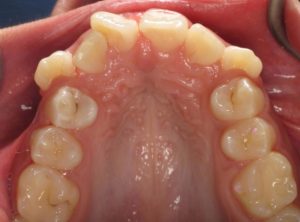
Sometimes the only way to straighten your teeth is by sacrificing a few good teeth to make room for your other teeth
An extra tooth is any tooth that does not properly fit into your mouth. In other words, if your jaw is too small for your teeth, you're going to end up with extra teeth in your mouth. Here are examples of cases where your teeth qualify as "extra" teeth:
- Impacted wisdom teeth - Remember those problematic wisdom teeth that can't find enough space to erupt in your jaw? These are considered extra teeth and you should remove them.
- Supernumerary teeth - These are teeth that exist in addition to your natural 28 teeth (or 32 counting the wisdoms). For example, you may have three bicuspid teeth instead of the usual two. If this is the case, then one of your bicuspids is considered to be an "extra" tooth and you may have to remove the tooth.
- Teeth crowding - Sometimes you don't have additional teeth but you don't have enough space for your existing teeth. This means that your natural teeth are causing teeth crowding. Removing a few teeth can correct your teeth crowding and improve your bite. Your orthodontist will help you decide if you have teeth that are causing crowding and whether or not you should remove them.
Hanging on to extra teeth leads to teeth crowding, food traps, and a poor bite relationship. Having a crowded mouth significantly increases your chances of developing gum disease, dental cavities, and tooth infections. As a result, it's generally not worth saving these extra teeth. Rid yourself of the extra teeth to protect the rest of your teeth and your mouth will thank you for it!
“But can’t we just redo the crown one more time doc?”
No, you may not! Look, your dentist wants to make you happy and save your teeth. However, some teeth are not worth saving any longer. Your dentist can get creative and come up with innovative ways to help you save a failing tooth:
- They can extend the clinically useful portion of the tooth with a crown lengthening procedure to increase the usable area
- They can place custom posts to gain additional support from the root structure
- How about we connect the crown to the tooth next to it since this tooth is not worth saving?
- Let’s try a stronger cement to see if maybe the crown stays in this time?
These are all great ideas and all, however, they only work if your tooth is still savable. There’s nothing worse than spending another $1,000 or $2,000 only to have your tooth fail a couple of months later. It’s your dentist’s moral duty to make sure that they are charging you for treatment that’s going to last a while. If the work fails sooner than expected, there is not much you can do about it. You just blew more time and money trying to save a tooth instead of investing in a proper replacement option. More experienced dentists refuse to treat teeth when they don’t have confidence in the tooth’s longevity and durability. Instead, they recommend that you remove the failing tooth and start saving up for replacement options including bridges and dental implants.
So how long should my tooth last me to make it worth saving?
Ideally a lifetime, but realistically, at least five years. If your dentist can not confidently give you a good five-year prognosis, then you should ask yourself if it's worth saving the tooth or not? With dental implants becoming increasingly affordable, it doesn't make sense to invest in a tooth with a poor prognosis. This can occur when teeth reach that critical point after which they simply won't respond to more dental treatment. Consider the following factors when deciding to save or remove a compromised tooth:
- How many times has the tooth been worked on?
- Is the tooth infected? If so, how bad is the infection? (You need a CT scan to answer this question)
- Your age (Sorry, but your age corresponds to the tooth's age and the older the tooth, the worse its prognosis)
- How much does it cost to save the tooth? And what is the prognosis?
- What is the cost of just removing the tooth and replacing it with a bridge or dental implant or even denture?
Talk to your dentist to explore your options to see if the tooth is worth saving. If you like your chances, they by all means invest the time and money to save your tooth. If not, then it's probably time to consider removing and replacing the tooth. Otherwise, you're just throwing good money after bad money!
0 Comments